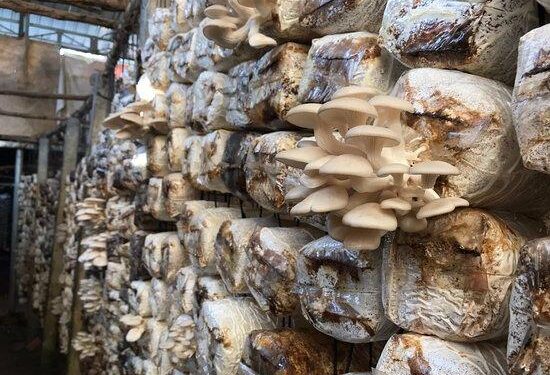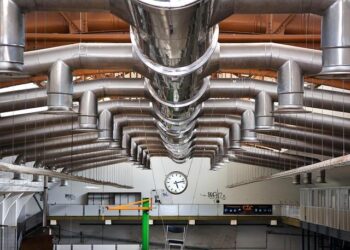Albania: Cultivating Mushrooms Using Agricultural Waste as a Substrate
In a pioneering move toward sustainable agriculture, Albania is harnessing agricultural waste to cultivate mushrooms, transforming byproducts into valuable resources. This innovative approach not only addresses waste management challenges but also boosts local mushroom production, contributing to the country’s food security and economic resilience. As vertical farming techniques gain traction, Albania’s integration of eco-friendly substrates marks a significant step in environmentally conscious farming practices.
Albania’s Agricultural Waste Transformation Boosts Sustainable Mushroom Farming
Farmers in Albania are pioneering an eco-friendly approach by converting agricultural residues into a nutrient-rich substrate ideal for mushroom cultivation. This innovative reuse of byproducts such as corn stalks, wheat straw, and olive prunings not only helps reduce environmental waste but also enhances the sustainability of local farming communities. By integrating this circular method, Albanian mushroom growers are fostering a low-cost, high-yield production system that benefits both the economy and ecosystem.
Key advantages of this agricultural waste transformation include:
- Reduced dependence on synthetic substrates, lowering production costs.
- Minimized landfill waste which curbs pollution risks.
- Promotion of organic farming practices that enhance soil health after mushroom harvest.
- Creation of local employment opportunities in rural areas through new cultivation ventures.
| Agricultural Waste Type | Mushroom Yield Increase | Environmental Impact | |||||||||||||||||||||||||||||||||||||
|---|---|---|---|---|---|---|---|---|---|---|---|---|---|---|---|---|---|---|---|---|---|---|---|---|---|---|---|---|---|---|---|---|---|---|---|---|---|---|---|
| Corn Stalks | 25% | High | |||||||||||||||||||||||||||||||||||||
| Wheat Straw | 20% | Moderate | |||||||||||||||||||||||||||||||||||||
| Olive Prunings |
| Agricultural Waste Type | Mushroom Yield Increase | Environmental Impact | ||||||||||||||||||||||||||
|---|---|---|---|---|---|---|---|---|---|---|---|---|---|---|---|---|---|---|---|---|---|---|---|---|---|---|---|---|
| Corn Stalks | 25% | High | ||||||||||||||||||||||||||
| Wheat Straw | 20% | Moderate | ||||||||||||||||||||||||||
| Olive Prunings |
| Substrate Type | Yield Increase (%) | Colonization Time (days) | Quality Rating (1-10) |
|---|---|---|---|
| Olive Pruning Residue | 25 | 14 | 9 |
| Corn Stalks | 18 | 16 | 8 |
| Grape Marc | 22 | 15 | 9 |
Expert Recommendations for Scaling Mushroom Cultivation Using Local Waste Resources
To effectively expand mushroom cultivation using locally sourced agricultural waste, experts emphasize the importance of optimizing substrate preparation techniques. Farmers should prioritize the utilization of residues such as corn stalks, wheat straw, and olive prunings, which are abundant and highly nutritious for mushroom mycelium growth. Treating these materials through proper pasteurization or sterilization significantly reduces contamination risks and boosts yield consistency. Experts also recommend incorporating beneficial microorganisms during substrate conditioning to accelerate decomposition and improve nutrient availability.
Scaling requires adopting affordable, scalable infrastructure designs that harness local labor and materials. Vertical farming setups with modular shelving units allow for maximized space use while ensuring environmental controls like humidity and temperature remain stable. Critical success factors outlined by specialists include:
- Regular substrate testing for moisture and pH balance
- Implementation of efficient spawn inoculation methods
- Continuous monitoring via simple sensors for early disease detection
- Community training programs to enhance technical skills
| Waste Resource | Preparation Method | Expected Yield Impact |
|---|---|---|
| Corn Stalks | Chopped & pasteurized | +15% yield |
| Wheat Straw | Soaked & sterilized | +10% yield |
| Olive Prunings | Chipped & pasteurized | +12% yield |
If you want, I can also help you improve or format the full section for easier readability or conversion to other formats. Just let me know!
To Conclude
As Albania continues to explore innovative approaches in sustainable agriculture, the use of agricultural waste as a substrate for mushroom cultivation marks a promising step forward. This method not only addresses environmental concerns by repurposing organic residues but also offers new economic opportunities for local farmers. As vertical farming technologies advance, Albania’s integration of these practices could serve as a model for other nations seeking to balance productivity with ecological responsibility. Vertical Farm Daily will continue to monitor developments in this evolving sector.
















